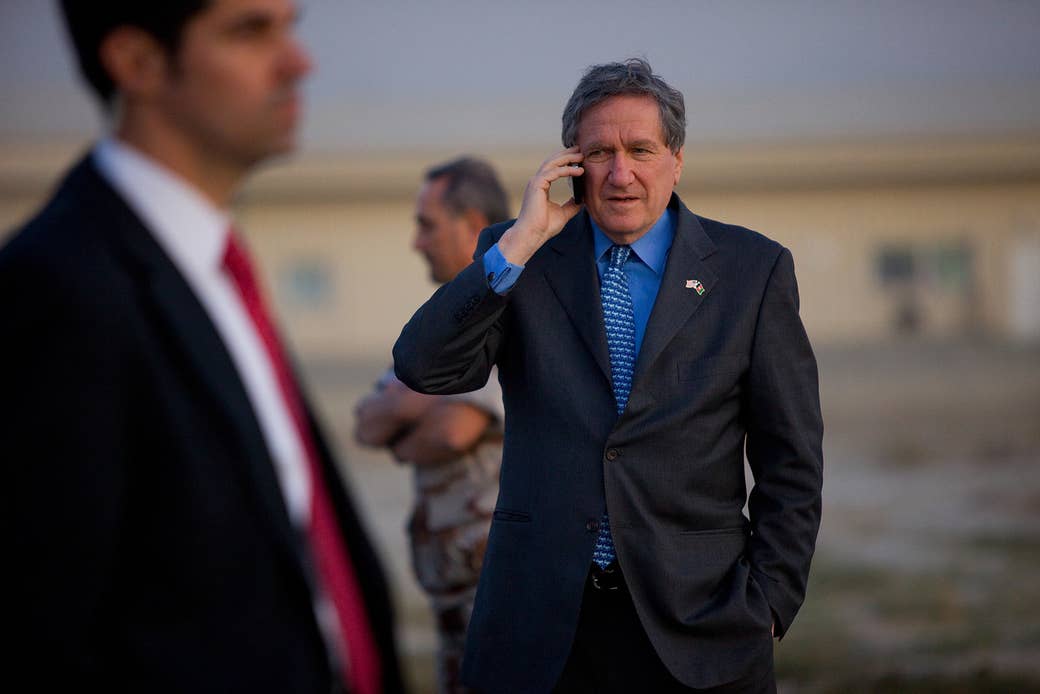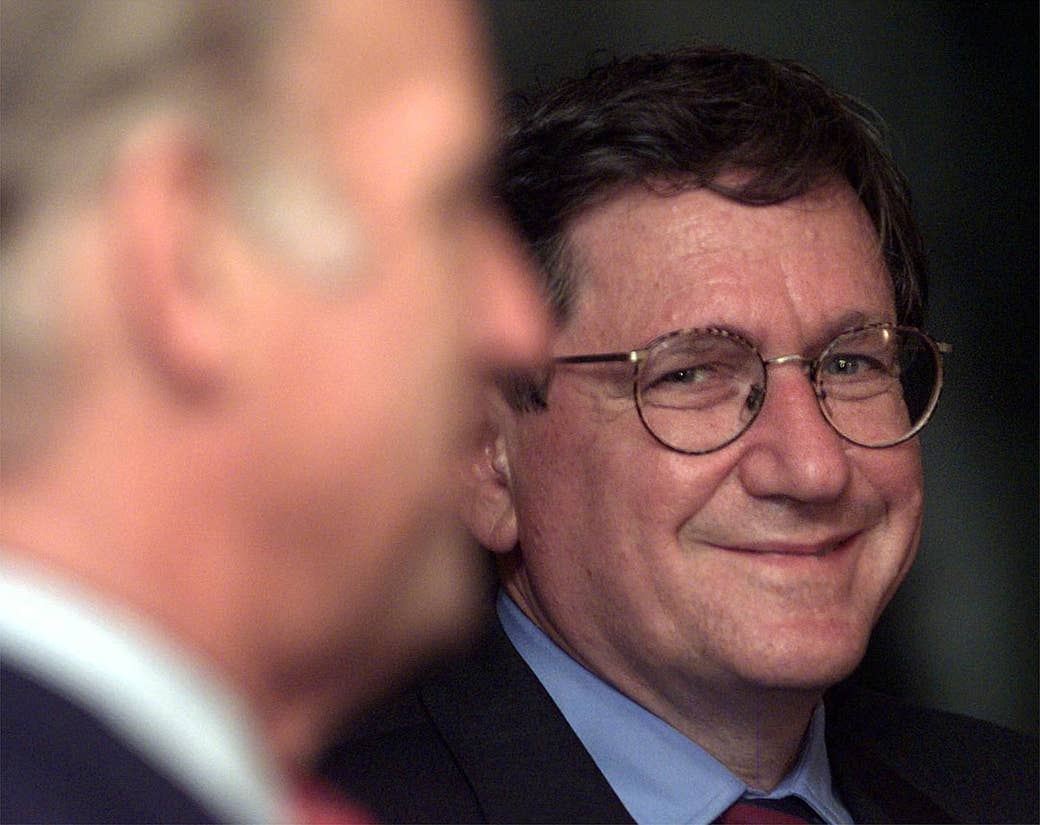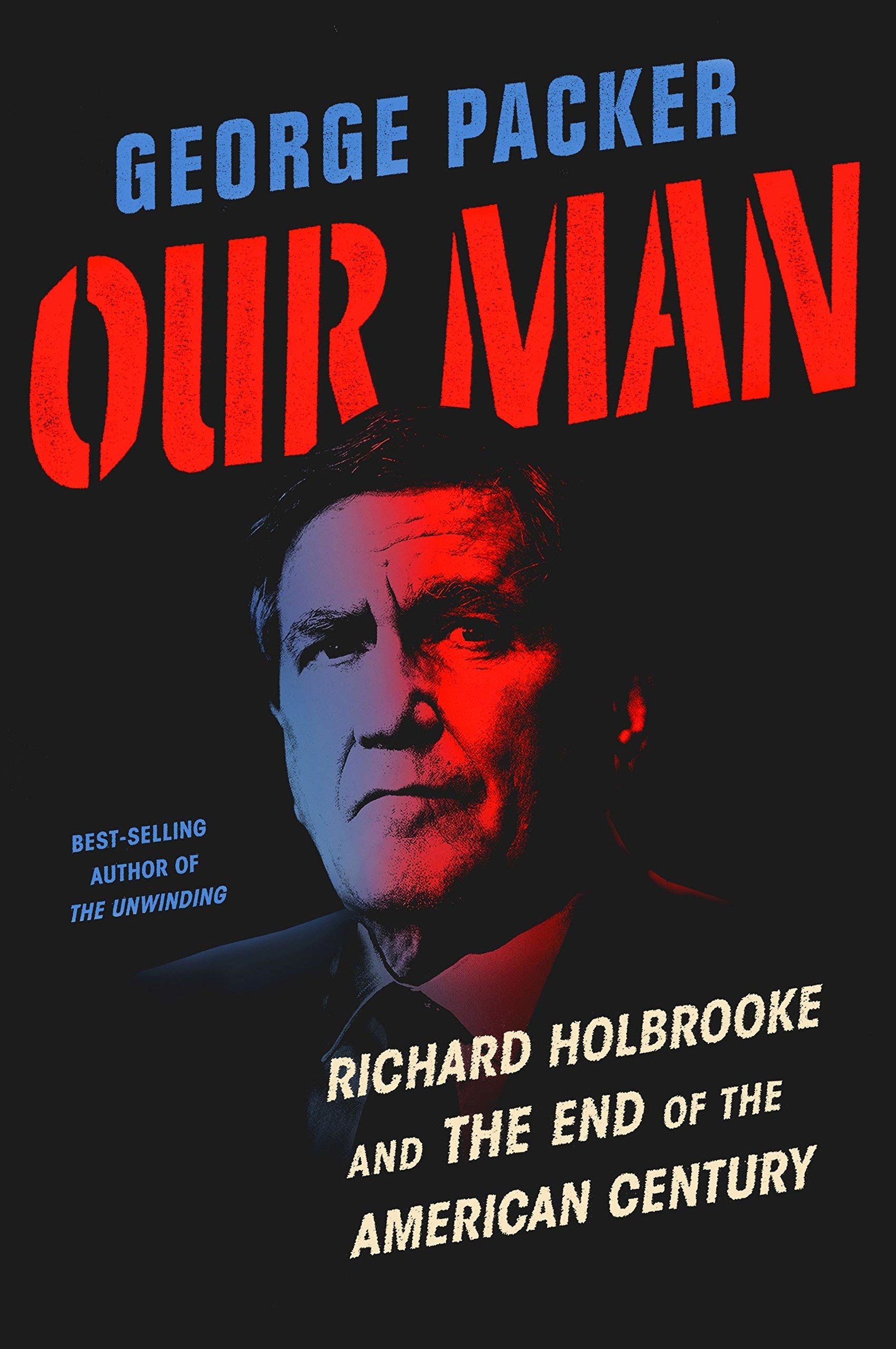
The American diplomat Richard Holbrooke was trying to talk Joe Biden into making women’s rights a priority in Afghanistan when the vice president lost his temper.
“When I mentioned the women’s issue, Biden erupted,” Holbrooke wrote in his diary. “Almost rising in his chair, he said, ‘I am not sending my boy back there to risk his life on behalf of women’s rights, it just won’t work, that’s not what they’re there for.’”
Holbrooke said in the 2010 meeting in the vice president’s office that he wasn’t for sending in troops to enforce women’s rights, just for pushing the issue with the Afghan government as troops departed.
“He thought it was bullshit, and this spiraled into a much larger discussion concerning the whole course of what would happen, and this was quite extraordinary,” Holbrooke wrote. “Joe took the position, plain and simple, that we have to get out of Afghanistan.”
The exchange between Holbrooke and Biden appears in George Packer’s stunning new biography of the diplomat, Our Man: Richard Holbrooke and the End of the American Century (Knopf, May 7). If you’re one of the dozens of people running for president, the book is probably the best guide you can find to navigating a transitional moment in American leadership and foreign policy.
For the rest of us, it’s a gripping read, and a sad one: It’s the story, ultimately, of a man who “clawed his way up the slope of an establishment that was crumbling,” and of the end of America’s 20th-century ambition to lead the world. Holbrooke — brilliant and ambitious and irritating, particularly to Barack Obama, and widely disliked but superbly connected — was the last of a 20th-century American type, as Packer portrays him. He played a central role in the last successful use of American force in the American Century, saving Bosnia’s Muslims from Serbian aggression and making peace in Dayton.
And if you’re thinking about what American foreign policy will look like with a Democratic president, Our Man offers a glimpse at an old way that nobody in particular wants to go back to. Seth Moulton, the congressman and former Marine who is considering a White House campaign and is the toast of the Democratic foreign policy establishment, recalled this year that he had once sought “to rebuild the foreign policy that we had before this administration.
“But now I realize that that's not possible. And inherent in this disaster is an opportunity. When your old house gets damaged by a bad renter, or in this case, a terrible president, you don't just restore it to look like it was built in 1950, you take the opportunity to renovate it. You don't just rebuild, you build something new, something more relevant, something better.”
What that becomes is wide open, and will likely be hashed out in unexpected crises and half-baked debate answers over the course of the next year of campaigning. Aside from a vague sense that we should be tougher on Russia and, in a hazy way, more sympathetic to the Palestinians, Democrats are stuck reacting to Trump’s odd mix of bluster and caution, and are mostly matching it by being against it. Tulsi Gabbard positions herself the candidate of peace, with vicious dictators if necessary; Moulton is the candidate of modernizing the art of war; but the leading candidates are all major figures in domestic policy without much record of acting in, or really being much interested in, the world abroad.
Biden is the exception to that pattern. He’s been a lion of Democratic foreign policy forever, at the front — with Holbrooke — of the push for American intervention in the Balkans; a vote for the Iraq war; and then the champion of a controversial proposal to split Iraq into three countries. He was also unusually willing, in the jingoistic years after 9/11, to challenge the very idea of a “war on terror,” and he arrives in Packer’s book as a minority voice against further American involvement in Afghanistan. Now he is the only candidate with long experience and deep relationships with world leaders.
Steve Clemons tried hard back in 2016 to determine a “Biden Doctrine,” and found parts of it in Biden’s belief in the power of personal relationships. Biden has also had his critics: Obama’s Republican defense secretary, Robert Gates, wrote in his memoir that Biden had been “wrong on nearly every major foreign policy and national security issue over the past four decades.”
But in the Obama administration, he was a voice of relative caution that looks wise in retrospect: against escalation in Afghanistan, and intervention in Libya. That sometimes pitted him against the generals, other times against Obama’s utopian strains. Biden’s recent speech on American leadership in Nebraska stressed the importance of things Trump has abandoned: alliances, traditional diplomacy, concern about America’s image in the world. What comes through in Holbrooke’s book is something pragmatic, improvisational, and modest about the use of American force.
And Biden’s opposition to the 2010 American build-up in Afghanistan looks, a decade later, obviously correct. There are no major American figures pushing for anything but a negotiated exit any more.

“In retrospect, Biden’s view that we should keep tightly focused on what brought us to Afghanistan in the first onscreen — defeating al-Qaeda — and not expanding the mission no matter how laudatory the goals was clearly correct,” Antony Blinken, a longtime Biden foreign policy aide and former deputy secretary of state, told me this week.
Blinken didn’t dispute the quotes attributed in Holbrooke’s diary to Biden — and there is something very Holbrooke about his reaching from the grave to cause trouble for his allies and enemies.
In Holbrooke’s telling, Biden was also immune to much of the rhetoric from neocons and liberal hawks about values and honor. Holbrooke recounts, in his diary, warning Biden that his argument for abandoning Afghanistan would betray “a certain obligation to the people who had trusted us.” It was a reference to the American abandonment of its allies in South Vietnam.
“Fuck that, we don’t have to worry about that,” Biden replied. “We did it in Vietnam, Nixon and Kissinger got away with it.” ●

Our Man: Richard Holbrooke and the End of the American Century (Knopf) is available May 7.
